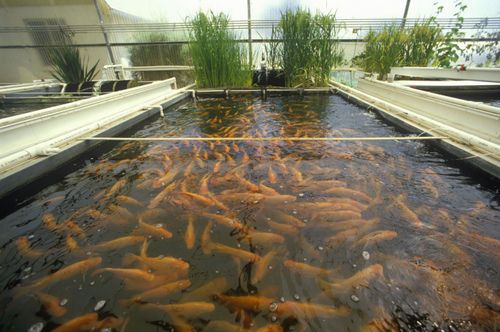By Joyce Mukucha
Small to Medium Enterprises (SMEs) in Zimbabwe have realised the potential in offering aquaculture related training which aims at exposing participants and prospective investors to fish farming business with a lot of income being generated from the projects.
Professional organisations in the Zimbabwean aquaculture industry are making tireless efforts in helping the majority to set up fish farming project. Blue Chip Fisheries International (BCFI) Managing Director, Sokonia Kaitano said the company has seen an increase in the number of enquires about their services concerning starting fish farming projects.
He said he was excited about the opportunity to help people in Zimbabwe by equipping them with knowledge to understand the industry as well as sensitise farmers about fish farming advantages.
Amongst a lot of projects in Zimbabwe, he indicated, fish farming was the most identifiable with the fact that it was not only about income generation but also about food security and consumer demand which is high.
“So far in Zimbabwe, we have managed to do a lot of projects. One of the biggest project the organisation has successfully managed to do is a project at Zhovhe Dam in Beitbridge along Mzingwane River. It’s helping people with technical expertise which even aid them with skills to develop warehouse factory with the processed fish and a lot of the value chain along the aquaculture site. As BCFI, we are seeing potential in the industry,” he said.
He added that his organisation was making prospects as they have managed to assist Non-Governmental Organisations where they installed little cages in different provinces which include Shurugwi in Midlands where there is Gonye Dam. In Mashonaland East, Manicaland, and Mashonaland West fish are stocked in cages, artificially fed, and harvested when they reach market size.
“Our market as Blue Chip International Fisheries are farmers in Zimbabwe. Those who have dams around them, those who have applied for the water bodies, and those who have water in their farms, it might be river, dam or borehole water. These markets are from all sectors which include urban areas whereby a number of people are willing to convert their swimming pools into fish tanks. Schools are also our markets. We are encouraging them to start fish farming projects. Ou markets also extend to councils, companies and individuals,” said Kaitano.
The company also installed cages in Masembura Dam in Bindura and others were stocked for individual people in Mazowe where about 30 000 to 40 000 fish were stoked in those cages. In Harare, 90 000 fish were installed in different fish farms where some farmers were already harvesting. The method is also called “off-shore cultivation” when the cages are placed in the river. The cages can be constructed from a wide variety of components.
However, though the industry was seeing potential, Kaitano said the farmers were also encountering challenges since the business was being affected by the economy which was not stable yet the aquaculture industry is capital intensity. Market linkages, he highlighted, was also one of the profound challenges faced by fish farmers. Besides, SMEs are reportedly failing to meet criteria requirements by purchasers of the product especially in terms of quality, standards, integrity and consistency.
“The challenges encountered in the aquaculture industry include accessing infrastructure yet people are economically battling. Most of the materials are imported and this means they are a bit expensive. The capital intensity of the project is expensive. We import the material and sell to the farmers. This is barring a lot of people not to realise their dreams.
“For the farmers whom we are setting projects for, their challenge is also market linkages but are very happy about Zimbabwe National Chamber of Commerce and COMESA’s encouragement on the SME side trying to link them with local, regional and international markets.”
Kaitano also mentioned that SMEs in fish farming were not consistent resulting in farmers failing to manage the markets around them.
“I was much challenged when I heard Cresta Group of Hotels that saying they cannot put fish on their menu not because they don’t want fish but because it’s so demanded on every table meaning the suppliers are not consistent,” he said.
BCFI was established in 2018 with the mission to acquaint participants to calculate profitability of the business, broadening them to cost reduction measures in Aquaculture as well as training participants in quality management and husbandry practices.
In other nations like Norway, fish farming is also popular but accompanied with risks as well where semi-submersible marine technology have impacted the project. In 2018, 1.5 million salmon were in the middle of a year-long trial at Ocean Farm 1 off the coast of Norway. On August 22, 2017, there was a massive failure of such cages at a commercial fishery in Washington State in Puget Sound, leading to the release of nearly 300,000 Atlantic salmon in non-native waters. This is believed to have risked endangering the native Pacific salmon species.
